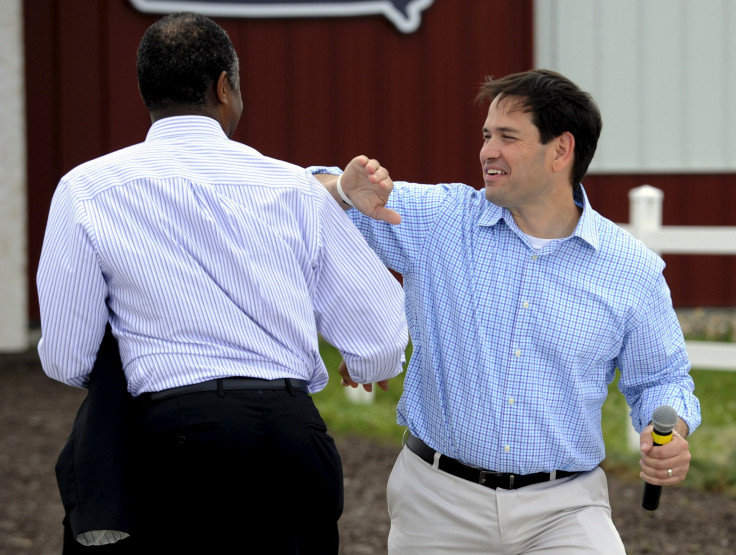Election 2016: New Hampshire Politicians Call For Changes To The GOP Debate Format

WASHINGTON -- A group of current and former New Hampshire politicians penned a letter calling on the Republican Party and Fox News to reverse their decision to cap the number of participants in the party's primary debates this fall. With such a large field of Republican presidential hopefuls, who gets to participate in the debates is shaping up to be the GOP's first internal dispute of the cycle.
“We urge you to reconsider the criteria and to design a debate that will allow voters to hear from a more diverse and inclusive group of candidates who have filed to run for president,” the letter reads. It was signed by dozens of New Hampshire political figures, including former Gov. Craig Benson, former Gov. Stephen Merrill and Chris Sununu, a political activist and son of the former Gov. John Sununu. New Hampshire holds the first primary in the nation -- only weeks after the Iowa caucus -- and is considered to have a large impact on the nomination process.
Fox announced last month that the debate field would be limited to those who are in the top 10 of an aggregate of national polls. Anyone tied for the final spot will be eligible to participate. Republican National Committee Chairman Reince Priebus publicly supported Fox's decision, and the open letter was addressed to both the news network and Priebus.
Another reason why Conservatives are dissatisfied with the cap on participants is the limit on the number of debates this year. Priebus instituted rules culling the number of primary debates, arguing that the 20 primary debates during the 2012 election cycle were "an embarrassment" and "ridiculous." With less debates and less participants, backers of candidates who are trying to build name recognition are displeased.
The overwhelming amount of Republican hopefuls has created a challenge for party officials and news networks as they organize the debates. As many as 20 Republicans could ultimately decide to run for president, and 10 candidates have already declared. Another five are all but certain, including two who have set announcement dates. Toss in a few unexpected surprises -- such as Donald Trump deciding to run -- and the field could become too much for one stage.
The unhappy New Hampshire politicians also expressed concern about diversity. The GOP currently has one woman, one black man and one Indian-American man in the race, but all three could be omitted from the first debate. Carly Fiorina, Ben Carson and Bobby Jindal all poll below the more well-known and funded candidates.
The New Hampshire group, however, does not believe that polls should be part of the decision-making process. “The proposed limitations are unnecessarily narrow and risk eliminating potentially viable candidates based on unreliable national polling that is rarely predictive of primary election outcomes,” the writers argue. “Any metric used to select the top...candidates based on public polling this early in the nominating process would make it impossible to ensure fairness. Indeed, the margin between the 10th candidate and those that don’t qualify will almost certainly be statistically insignificant.”
They are recommending that Fox opt for a two-panel solution for the debate format. The field would be split into two different groups with half of the top six appearing in one and half of the top six appearing in the other. The remaining candidates would be randomly divided between the two panels.
“Denying candidates an opportunity to showcase their talents and experience in the first televised debate would artificially distort the political process, stifle democracy and competition and induce voters to consider only those candidates preselected by virtue of their name [identification] rather than their potential as candidates,” the New Hampshire politicians argue.
© Copyright IBTimes 2024. All rights reserved.






















